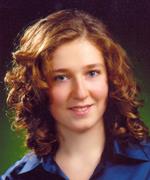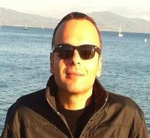
... I made excellent friends and enjoyed the campus life ..... Besides, I believe that I have gained.... ...read more..
A list of Education and Research laboratories of ECE department is given below:
1. Multimedia Signal Processing and Pattern Recognition Laboratory
2. RF Electronics Laboratory
3. Wireless Communications Research Laboratory
4. Communications Laboratory
5. Circuits & Systems Laboratory
6. VLSI Measurement Laboratory
7. VLSI Design Laboratory
8. Signal Processing Laboratory
9. Electromagnetic Diagnostic and Measurement Laboratory
10. Biomedical Electronics Laboratory
11. Embedded Systems Design Laboratory
12. Microwave Systems and Antennas Laboratory
13. Intro. Electronics & Analog Electronics Circuits Laboratory
14. Radar and Microwave Technologies Research Laboratory

... I made excellent friends and enjoyed the campus life ..... Besides, I believe that I have gained.... ...read more..

...just like other ITU members, I always feel privileged and quite lucky.... ...read more..




